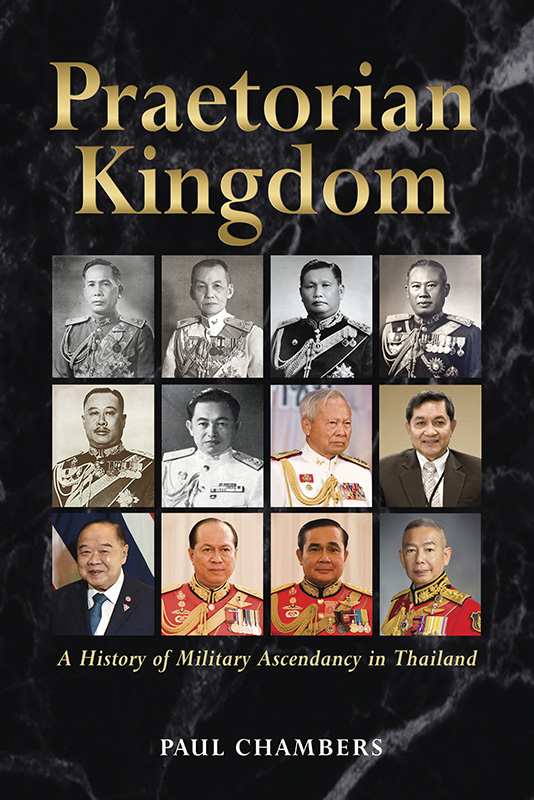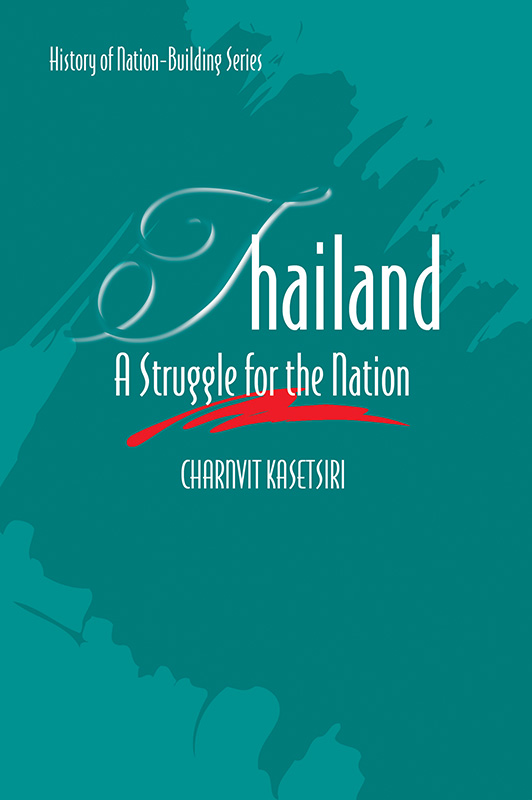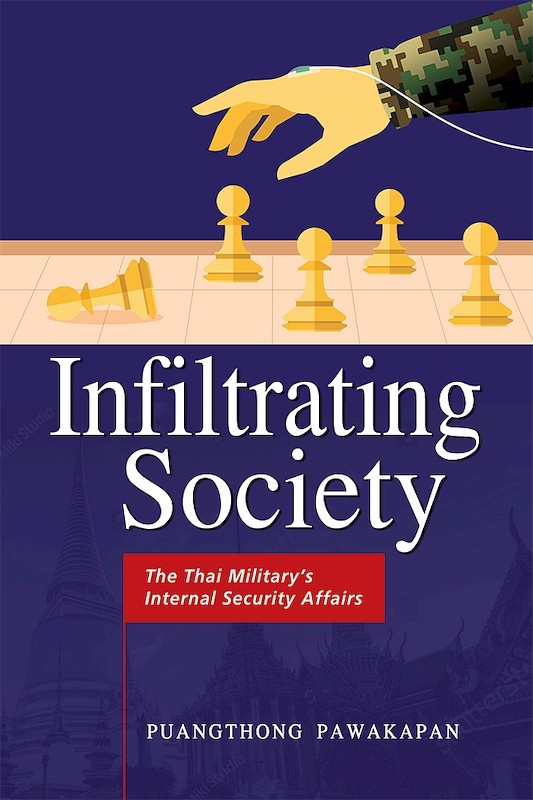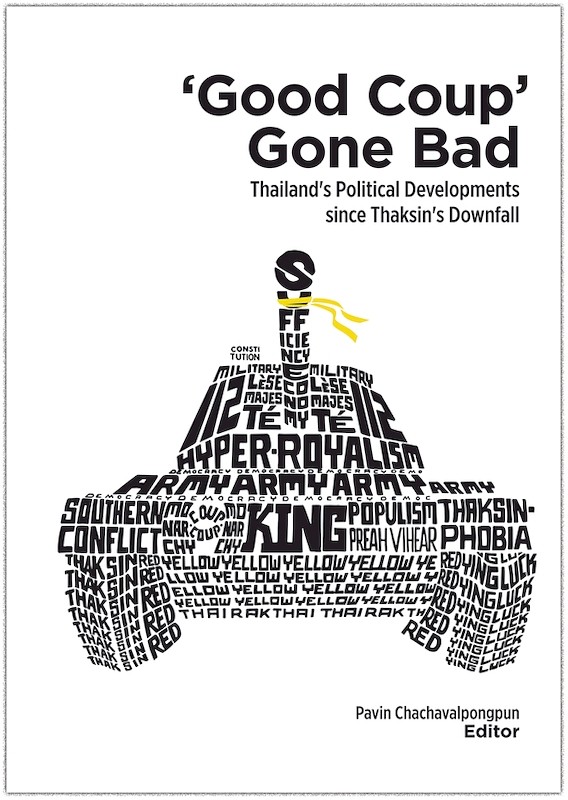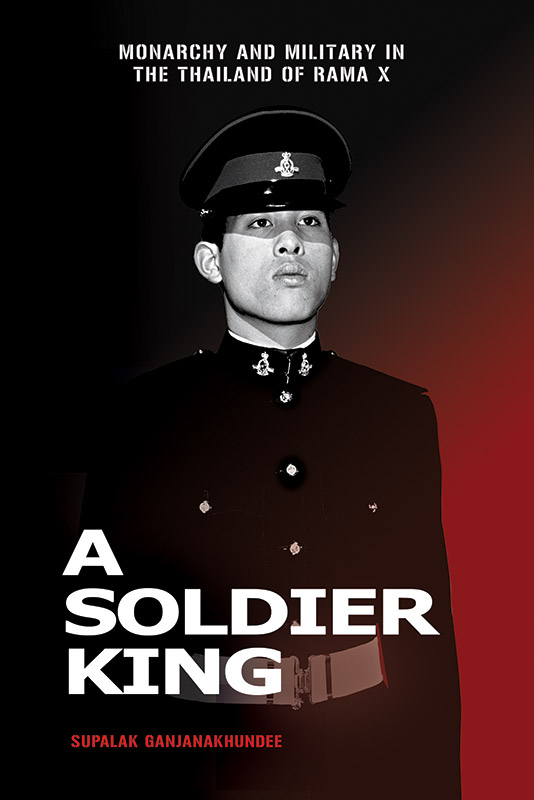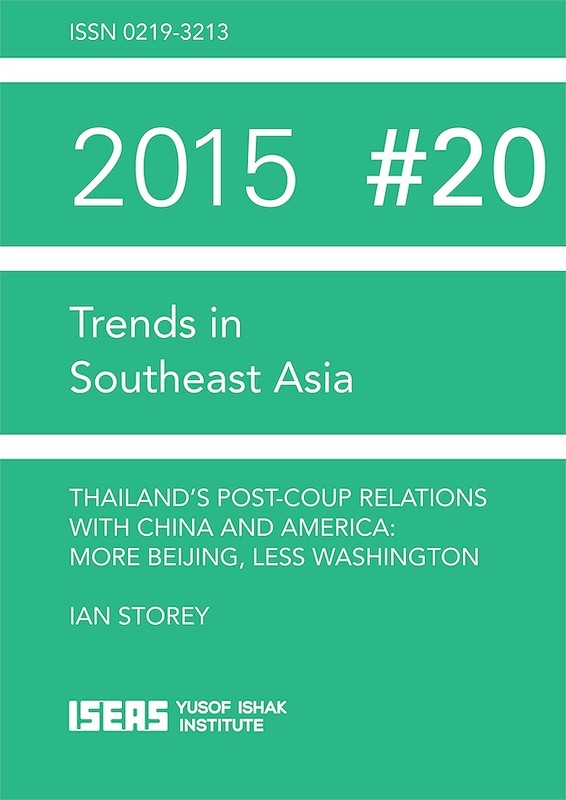After the Coup: The National Council for Peace and Order Era and the Future of Thailand
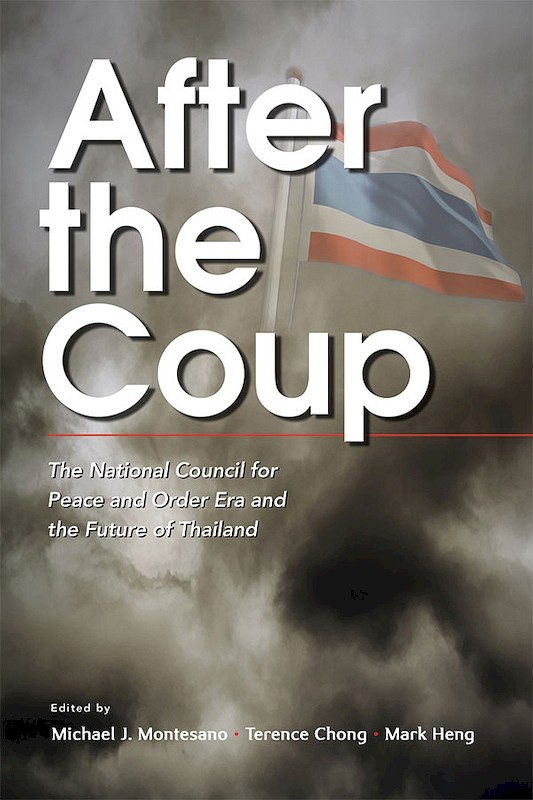
Date of publication:
2019
Publisher:
ISEAS – Yusof Ishak Institute
Number of pages:
465
Code:
BM573
Soft Cover
ISBN: 9789814818988
Reviews
Barney Smith, Asian Affairs, 2020.
"Taken as a whole, the book provides a quarry for those who wish to argue that Thailand is due for a change in a more democratic direction (never forgetting that Thaksin, the former prime minister, had populist credentials.) But that sort of change did not occur after the elections which ended the coup period. So, for me, the most interesting article is the last one, "Thailand in Transition", by Terence Chong, which is more general in nature and thus more distant from the immediate political context. In it Chong notes the realities of Thai life and the way in which pragmatic solutions have to be found to confusing situations. He is correct in identifying three key elements of Thai life as being the monarchy, the military and the elite. To these he adds the rising importance of popular opinion. He then raises the crucial definitional question of "Thai-style democracy" which was around well before the debate on 'Asian values.'"
Kevin Hewison, Journal of Contemporary Asia, 8 July 2019.
With 15 chapters, a lot of ground is covered in this book. .... The chapters that examine the monarchy - ... - are of considerable interest. .... Another discussion of the monarchy is Puangthong Pawakapan's Chapter 12, where attention is given to the changing perception of the monarchy in foreign media reporting. This focus is useful as there would be no point to looking at the domestic press as it is cowed and self-censoring, fearful of the draconian lese-majeste law. It is also revealing of the foreign media's light-bulb moment on the monarchy, making it more critical in its reporting.
The motivations of the supporters of recent political movements are examined in Chapter 3 by Anusorn Unno, Chapter 4 by Saowanee T. Alexander and McCargo and Chapter 5 by Thanet Charoenmuang. ...this is a useful collection of well-edited and readable contributions on the current state of Thailand's politics."
About the publication
After the Coup brings together the work of a group of leading Thai intellectuals of several generations to equip readers to anticipate and understand the developments that lie ahead for Thailand. Contributors offer findings and perspectives both on the disorienting period following the Thai coup of May 2014 and on fundamental challenges to the country and its institutions. Chapters address regionalism and decentralization, the monarchy and the military, the media, demography and the economy, the long-running violence in Southern Thailand, and a number of surprising social and political trends certain to shape the future of Thailand. The volume will serve as a valuable resource for all those concerned with that future.
“This highly acclaimed collection of scholars’ answers to basic questions about the political situation after the 2014 military coup in Thailand offers a comprehensive analysis of many crucial institutions and sensitive issues that no other work has touched. The book covers the intricate relationships among conflicting classes, political movements, the military, and, above all, the monarchy. It puts on the table many important debates about the crisis of democratization in the country, including the struggle of Malay-Muslims in Southern Thailand, the transformation of electoral violence, the dilemma of political decentralization, the changing roles of the media, and the impact of slowing economic growth and an ageing society on the future of Thailand.”
— Kanokrat Lertchoosakul, Chulalongkorn University, author of The Rise of the Octobrists in Contemporary Thailand
“After the Coup should be read by anyone interested in understanding the current state of Thailand’s political affairs, tracing the historical origins of the current challenges and conflicts, or looking for clues about what may be to come. This outstanding set of scholars explores how Thailand’s disparate collective identities are at the root of the current political and social conflict. These collective identities carry with them different visions of what it means to be ‘Thai’, what democracy is and how it should function, and the sources of political legitimacy. The chapter authors describe how those behind Thailand’s ‘ambitious coup’ have attempted to crush, co-opt, quell, and contain these competing visions.”
— Allen Hicken,
University of Michigan, author of Building Party Systems in Developing Democracies
“Featuring a collection of essays authored by many of the field’s leading lights, expertly curated and edited by one of the most knowledgeable scholars in Thai Studies, After the Coup is a vital contribution to the study of contemporary Thai politics. The depth and sophistication of its analysis, and the variety of viewpoints represented, make it a must-read for anyone wishing to understand the significance of the events set in motion by the military coup staged in Thailand on 22 May 2014, one in crucial respects quite unlike the series of coups d’état that punctuate the country’s modern political development.”
— Federico Ferrara,
City University of Hong Kong, author of The Political Development of Modern Thailand
“This book covers many of the most important current aspects of the Thai political problem, to help readers better understand why Thailand continues in its struggle to democracy. For example, it provides for a very insightful sense of an emergent middle class that has been one of the main obstacles in Thai democratic progress, both before and since the military coup d’état of 2014.”
—Titipol Phakdeewanich, Dean, Faculty of Political Science, Ubon Ratchathani University
Contents
-
After the Coup: The National Council for Peace and Order Era and the Future of Thailand
[Whole Publication, ISBN: 9789814843058], by Michael J Montesano, Terence Chong, Mark Heng Shu Xun, editors -
Preliminary pages
-
1. Introduction: Thai Realities and Possibilities after the 22 May Coup, by Michael J Montesano, author
-
2. The Rise of the Thai Upper Middle Class and its Turn against Democracy, by Thorn Pitidol, Chanon Techasunthornwat , authors
-
3. “We the Southerners Come to Protect the Nation and the King”: Southerners’ Political Rise and Regional Nationalism in Thailand, by Anusorn Unno, author
-
4. Exit, Voice, (Dis)loyalty? Northeast Thailand after the 2014 Coup, by Saowanee T Alexander, Duncan McCargo, authors
-
5. The Red Shirts and Their Democratic Struggle in Northern Thailand, April 2010 – May 2015, by Tanet Charoenmuang, author
-
6. The Shifting Battleground: Peace Dialogue in Thailand’s Malay-Muslim South, by Rungrawee Chalermsripinyorat, author
-
7. Thailand’s Zigzag Road to Democracy: Continuity and Change in Military Intervention, by Surachart Bamrungsuk, author
-
8. Murder and Regress: Violence and Political Change in Thailand, by Prajak Kongkirati, author
-
9. Thailand’s Politics of Decentralization: Reform and Resistance before and after the May 2014 Coup, by Viengrat Nethipo, author
-
10. Change and Continuity in the Politics of the Media after the Coup, by Aim Sinpeng, Wimonsiri Hemtanon , authors
-
11. Thailand’s Royal Democracy in Crisis, by Thongchai Winichakul, author
-
12. The Foreign Press and its Changing Perceptions of the Thai Monarchy, by Puangthong Pawakapan, author
-
13. Thai Economic Growth: Retrospect and Prospect, by Porphant Ouyyanont, author
-
14. Features and Challenges of an Ageing Population in Thailand, by Kwanchit Sasiwongsaroj, Youngyut Burasit, authors
-
15. Conclusion: Thailand in Transition, by Terence Chong, author
-
Bibliography
-
Index

